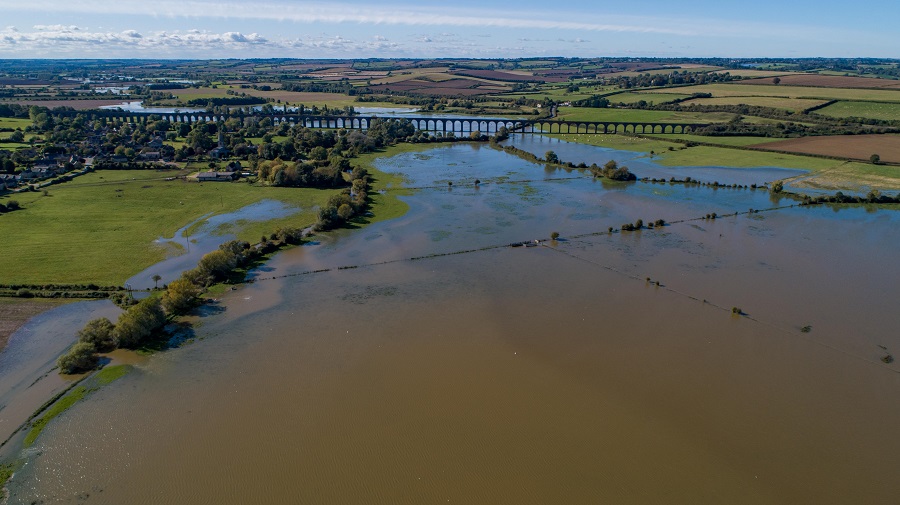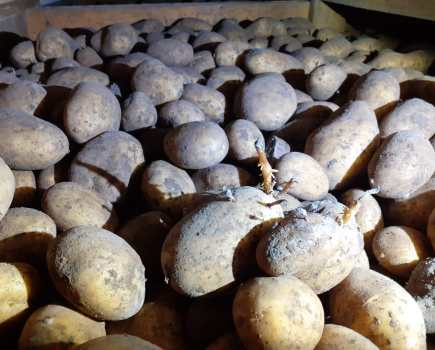The NFU has launched a new report calling for urgent action to bring the nation’s water infrastructure up to date to better cope with extreme weather events, from flooding to drought. Charlotte Cunningham reports.
The Integrated Water Management Report urges government, water companies and farmers to properly invest in water management as a critical response to climate change, and sets out why a long-term, collaborative approach is needed, as well as how the NFU is calling for farmers and land managers to be part of the solution and take on-farm action to help achieve these goals.
The report reveals that:
- Significant investment in water infrastructure is crucial to protect existing farmland and food production during extreme weather events, increase our food security, and help deliver the NFU’s ambition for farming to be net zero by 2040.
- 57% of farmers say they have experienced extreme weather conditions, such as flooding or drought, in the past 10 years. This shows why there is a pressing need to further equip farmers with tools to manage extreme weather events.
- The creation of a multi-sector integrated water management strategy would help secure a fair share of water for agriculture and establish the agri-food sector as an essential user of water.
NFU deputy president Stuart Roberts said: “We saw last week the impact of Storm Christoph leaving hundreds of ac of productive farmland under water. As the entire nation continues to deal with more volatile weather, now is the time to look at the bigger picture, as these extremes are impacting British farming’s ability to produce food.
“We need to think long-term instead of reacting every time we’re hit by a severe storm or a spell of hot, dry weather. Cooperation and collaboration between farmers, government and water companies is vital in our response to managing flooding and drought risk, to protect productive farmland and ensure farmers are getting their fair share of water.
“Critical to this will be significant investment in our water infrastructure – an ambitious upgrade of ageing flood defences, drainage and waterways. We should embrace Britain’s great engineering and science skills to look at ways of how we can collect and store water when some parts have too little and others too much. This could enable farmers to grow more fresh fruit, vegetables, flowers, or other crops here in Britain, in addition to farming smarter to bring down our emissions and help achieve our net zero ambition by 2040.
Investment and resilience
Stuart believes that growers are ready to play their part in making significant changes. “There are already great examples of farmers adapting their businesses to make them more resilient to extreme weather by developing on-farm rainwater harvesting systems and using precision irrigation. They can do much more as long as they have support and the tools to do so; being able to access funding to build more on-farm reservoirs and to invest in new irrigation equipment would help alleviate flooding and secure more water.
“The series of recent floods and droughts has highlighted the vulnerability of the entire country to extreme weather and climate change, from farmland to our towns and cities. A serious commitment by government, water companies and from farmers to upgrade and invest in our water infrastructure will have benefits for everyone.”




